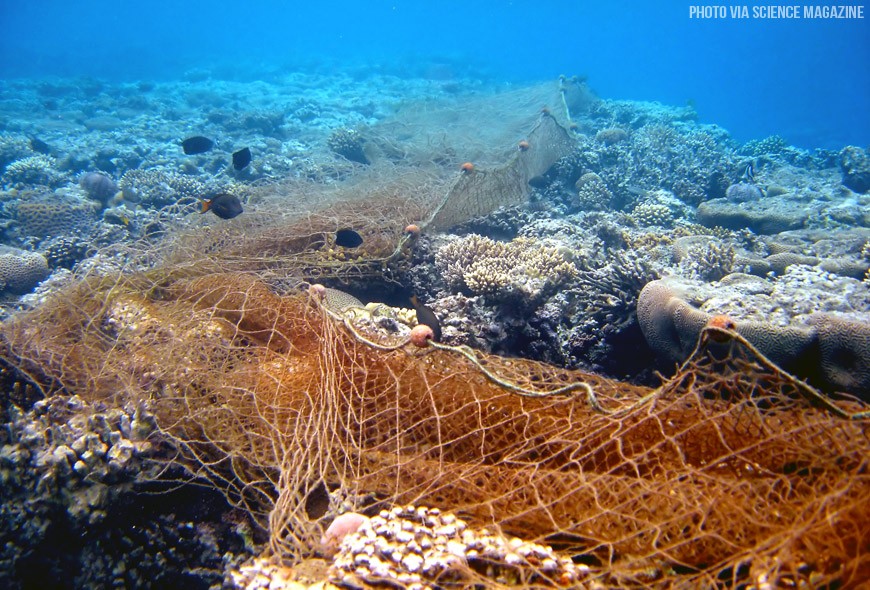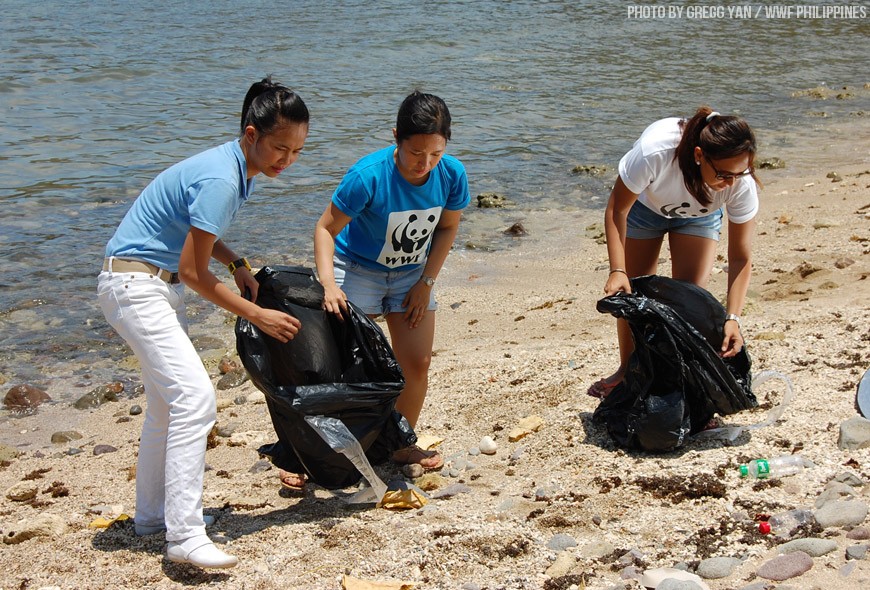At this point, we’ve all come across some type of campaign or advertisement pleading that we get our act together before the planet is destroyed. But how much damage have we really done? As the global demand for food is prospected to double by 2050, it’s safe to say that there is a lot that needs to be done to feed a hungry world, and to start, we have to do something about the issue of ocean pollution.
We take the vast blues for granted. The ocean produces 50 percent of the planet’s oxygen and plays a major part of the water cycle, giving us rain to produce food. We literally wouldn’t exist without the ocean, so why are we being so careless toward it? The ocean stores the vast majority of carbon on Earth, including the extra carbon generated by people clearing forests and burning fossil fuels. If we didn’t have the ocean to stabilize the climate, the Earth would be a sauna.
How Bad Is Ocean Pollution?
More than 1 billion people depend on seafood as their main protein source, but at least 30 percent of the fisheries around the world are overexploited or depleted. The ocean floors are being covered in nets that kill marine life and we’re taking more fish out of the sea than can realistically be provided. Wildlife is being destroyed for selfish reasons like cutting off shark fins for trade.
One third of coastal regions such as marshes, shorelines and coastal forests, are ruined. These ecosystems act as Earth’s carbon sponges. Although they only comprise 2 percent of the ocean, they store 50 percent of the ocean’s total carbon – we need them for a stable climate.
Rivers that lead into the ocean are being filled with pollutants, creating “dead zones.” Dead zones get their name because chemicals promote the growth of plants that suck up oxygen instead of producing it, so literally nothing can live in these zones but the species created by the pollution. There’s a “garbage patch” that is twice the size of Texas where plastic from all over the world accumulates, creating nature’s biggest waste dump.
By 2050, nearly all of the coral reefs around the world could be at risk of dissolving or dying out because of ocean pollution. Today, 75 percent of the coral reefs are threatened by too much heat and Co2 intake, leaving the ocean in a much warmer and acidic state.
Stephen Dishart, a consultant and a teacher with experience in various fields of conservation, formerly worked with The Blue Ocean Institute on the current issue of ocean pollution and climate change. He explains to MiLLENNiAL that “plastic islands” are being formed from all of the plastic we use that is not recycled and that the affect on marine wildlife is devastating. Turtles eat jellyfish and mistake plastic bags for food. Dishart recounts a disturbing image that went viral on the Internet of an albatross, the world’s largest bird, regurgitating a toothbrush that it mistook for food into the mouth of its baby.
Dishart discusses oil spills, particularly the Deepwater Horizon accident, also known as the BP oil spill, where an estimated 210 million gallons of oil were discharged into the Gulf of Mexico: “These tremendous oil spills do long-term damage to our oceans and fisheries, particularly in Third World countries where fish is a major source of protein,” said Dishart. “The poorest of the poor are being impacted by ocean wildlife.”
Dishart unveils the shocking reality that, “we’ve had consistency in our global temperatures for centuries and it’s been disrupted in the matter of two decades. The strength of hurricanes are fueled by warmer seas, and sometimes scientists link thunderstorms and tornadoes to climate change.”
So, how bad is ocean pollution? It’s really bad.
How Do We Fix It?
There are small changes we can all make in our lives that will help reduce the current state of pollution in a big way. For example, instead of plastic bags, bring a reusable bag with you when you go grocery shopping. Store food in reusable containers instead of the containers you throw away. You’ve got the idea – use, reuse, and reuse again.
Go meat-free once a week.
If everyone in the US ate one more vegetarian meal a week, more than 36,000 trillion gallons of water would be saved due to the amount of water necessary to produce meat that can be sold in stores. That’s a lot.
When you’re cooking up a nice seafood dinner, make sure that the fish is sustainably sourced. How do you do this? Check out the SafinaCenter.org which ranks seafood by a color code system: green for the best choice, yellow for a choice with some concerns, and red to make sure you avoid it. Put pressure on suppliers to improve practices so fisheries are managed better. Don’t buy their products if they aren’t sustainably sourced.
Start composting.
Food scraps are full of energy to be naturally recycled instead of rotting and releasing methane, a potent greenhouse gas. Worm composting uses red worms to transform food scraps, or for those of us who are less enthused to invite live worms into our homes, simply freezing food scraps and finding a nearby compost collection site would get the job done. Many farmer’s markets will even do the dirty work for you.
Waste less food.
Every year, about a third of the food produced worldwide for human consumption gets wasted. This contributes to several greenhouse gases, and about 25 percent of all fresh water consumed annually in the US is wasted on food that gets thrown out. Some people don’t even have access to fresh water and we’re carelessly throwing away a quarter of our own.
Avoid products such as soaps and facial cleansers that contain microbeads.
Although they may help give us a stunning complexion, these tiny plastic beads, each smaller than a grain of sand, are making their way through the sewer systems into rivers, lakes and oceans. Microbeads contaminate water with damaging chemicals, and when the beads are swallowed by fish, these chemicals can not only harm the marine life, but also make it into our own food supply.
Dishart’s expert advice is that we need to arrest climate change, and to do so, “it will take reducing our dependence on fossil fuels. We aren’t sustainable in the current way.” He also says, “we need to be aware of the impact that we have on our own survival.”
It’s time to make small changes to our daily routine that, together, will have a global impact. If we continue living in the hazardous manner that we are currently accepting, the amount of ocean pollution and climate change will inevitably leave us with an Earth that can no longer sustain human life.


